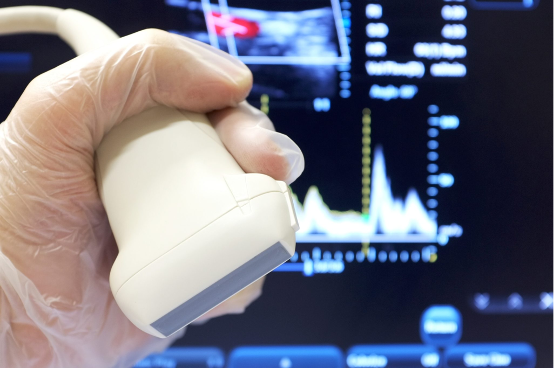Ultrasound-Aided Blood Testing Detects Cancer Biomarkers from Cells
May 17, 2024
Source: drugdu
 453
453
 Ultrasound imaging serves as a noninvasive method to locate and monitor cancerous tumors effectively. However, crucial details about the cancer, such as the specific types of cells and genetic mutations involved, typically require invasive biopsies, which can cause harm. Now, a research team has developed a new method to utilize ultrasound for gently extracting this genetic information.
Ultrasound imaging serves as a noninvasive method to locate and monitor cancerous tumors effectively. However, crucial details about the cancer, such as the specific types of cells and genetic mutations involved, typically require invasive biopsies, which can cause harm. Now, a research team has developed a new method to utilize ultrasound for gently extracting this genetic information.
Researchers at the University of Alberta (Edmonton, AB, Canada) have been investigating the use of intense ultrasound in releasing biological indicators of disease, or biomarkers, from cells. These biomarkers include elements like miRNA, mRNA, DNA, and various genetic mutations, all of which are critical for identifying the cancer type and guiding treatment decisions. The ultrasound technique releases these biomarkers from the cells into the bloodstream, where they reach concentrations high enough to be detected. This enables oncologists to identify and track the cancer's status or response to treatment through blood samples instead of invasive biopsies, making the process less painful and more cost-effective.
The application of ultrasound has proven to enhance the presence of genetic and vesicle biomarkers in blood samples by more than 100 times. The researchers successfully identified panels of tumor-specific and now epigenetic mutations that previously could not be detected in blood samples. This method is not only effective but also more affordable than traditional tests. They noted that ultrasound-enhanced blood tests could be performed at a cost similar to that of a COVID test, a significant reduction from the usual USD 10,000 per test.
Furthermore, the research team explored using intense ultrasound to liquefy small tissue samples for easier biomarker detection. This liquefied tissue can be collected from blood samples or via fine-needle syringes, which are considerably less invasive than traditional core-needle biopsies. These advancements in cancer detection technology could lead to earlier diagnosis and treatment, offering healthcare providers flexibility in managing treatment efficacy without the high costs and risks typically associated with frequent biopsies.
“We hope that our ultrasound technologies will benefit patients by providing clinicians a new kind of molecular readout of cells and tissues with minimal discomfort,” said Roger Zemp from the University of Alberta who led the team.
Source:
https://www.labmedica.com/molecular-diagnostics/articles/294801159/ultrasound-aided-blood-testing-detects-cancer-biomarkers-from-cells.html
Read more on
- Gusekirumab Injection Accepted by CDE, Multiple Pipelines Advancing Simultaneously March 4, 2026
- Yifan Pharmaceutical’s teriparatide injection has been accepted by the CDE (Center for Drug Evaluation), adding a new domestic player to the osteoporosis treatment field March 4, 2026
- //news.yaozh.com/archive/47318.html PD-1 sales surge March 4, 2026
- A major breakthrough! Roche’s oral BTK inhibitor achieves its third Phase III clinical trial victory, a game-changer in the multi-billion dollar MS (manufactured pharmaceuticals) market. March 4, 2026
- GB19 Injection Approved for Clinical Trials of Cutaneous Lupus Erythematosus March 4, 2026
your submission has already been received.
OK
Subscribe
Please enter a valid Email address!
Submit
The most relevant industry news & insight will be sent to you every two weeks.



